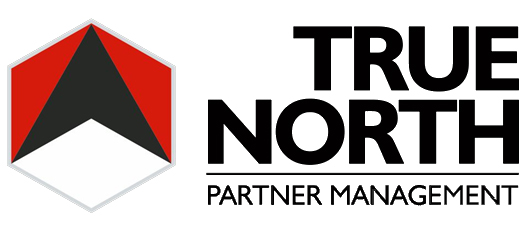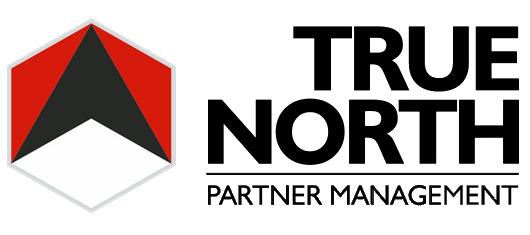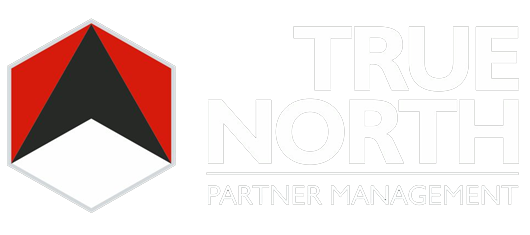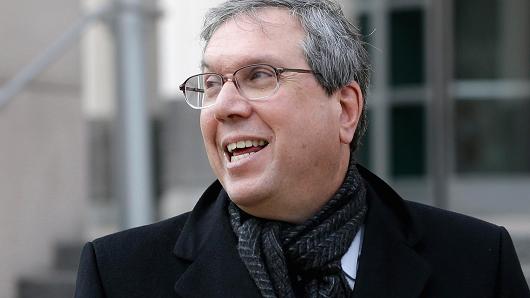The following post originally appeared on Forbes | Apr 8, 2014
“I fear all we have done is to awaken a sleeping giant and fill him with a terrible resolve.” Isoroku Yamamoto
Adopting Western political, judicial, and military institutions in the late 19th and early 20th century, Japan was able to grow its population from 35M in 1873 to 70M by 1935. Being on the side of the victorious Allies in World War I greatly widen its influence and territorial holdings. And after occupying Manchuria in 1931, resigning from the League of Nations in 1933, and signing the 1940 Tripartite Pact to become one of the Axis Powers, the empire’s britches felt snug enough by 1941 to attack the most powerful nation in the world.
But, for all of their might, and the wholly-one-sided victory at Pearl Harbor, Admiral Yamamoto’s famous words of regret were, perhaps, as accurate and prescient as the crystal clear view of hindsight, itself.
Much speculation surrounds these words; there is no formal documentation to verify their utterance by Yamamoto. Regardless, as I finished my conversation with Jeffrey Kessler, chair of Winston & Strawn’s Antitrust/Competition practice, about his lawsuit against the NCAA, Yamamoto’s words haunted me. Kessler, perhaps best known for bringing free agency to the NFL, has one of the most prolific and starlit track records in sports law. A very small sample of his wins includes the following:
- NFLPA v. NFL— Successfully represented NFLPA in challenge to provisions of NFL TV Contracts used to fund the NFL 2011 Lockout.
- NBA Player Class Actions— Successfully represented various classes of NBA players in different antitrust actions leading to the current free agency/salary cap system in the NBA and the end of the 2011 NBA lockout.
- McNeil, et al. v. NFL, et al.— Won jury verdict for NFL players striking down free agency restrictions under the antitrust laws. This victory led to the Reggie White class action, in which the free agency/salary cap system in the NFL was negotiated.
- Oscar Pistorius v. IAAF — Won landmark arbitration for Oscar Pistorius, the double amputee runner, enabling him to compete against able-bodied athletes and to realize his dream of competing in the Olympics.
Unfortunately for the NCAA, they are next up in Kessler’s crosshairs, and it is quite unlikely that they will succeed where the NFL, the NBA, and the IAAF, among others, have failed. Over the years, their position on amateurism in college athletics has not only been consistent, it has also been defended time and again. But they have not faced an opponent on the scale of Jeffrey Kessler before—not by a country mile.
Current NCAA Division I rules send the gross majority of the billions of dollars in sports-generated revenue right back to the schools, coaches, administration, and staff; the athletes see very-little-to-none of it. And as NCAA General Counsel Donald Remy is now coming to understand, collaring revenue of that magnitude can send tremors across the landscape; tremors strong enough to awaken a sleeping giant.
Parnell: Can you give us a 20K ft. view of your suit?
Kessler: It is our contention that the rules of the NCAA, which prohibit schools and conferences from deciding for themselves how, and whether, to compensate basketball and football players at the highest level, are illegal under the anti-trust laws, and therefore, must be stricken down.
Parnell: Your timing on this … the NCAA’s position has been consistent for a very long time. Why is this just coming out now?
Kessler: What’s happened is that division I basketball and football have become so enormous—generating billions of dollars each—that it can no longer be ignored that these are not amateur enterprises, but in fact, significant businesses that are subject, fully, to the antitrust laws.
Parnell: How does this tie into the Ed O’bannon settlement talks? Those, and the launch of your NCAA suit are relatively close in timing. Is this a coincidence?
Kessler: The Obannon case is designed to strike down the rules which prohibit players [from marketing] their names, rights, likenesses, and intellectual property in college sports. I am sure it’s motivated, in significant part, by some of the same enormous revenue development that has caused other cases like ours to be filed. But the objectives and the issues in the cases are very different.
Parnell: Would the acceptance of the settlement by the NCAA put them, perhaps, in a weaker position to defend against your case?
Kessler: I think every step that the NCAA makes to acknowledge that its rules for men’s Division I basketball and football no longer make sense in the 21st century—if they ever made sense—is a step closer to conceding that the system has to change in our case as well.
Parnell: I read in a sports illustrated article that your main goal is to change the system.
Kessler: That’s right.
Parnell: Then I pose a simple question: Why, exactly, are you trying to do that?
Kessler: Because the system is fundamentally unfair. We have a situation where everybody associated with division I men’s basketball and football has the opportunity to reap great financial benefits from the revenues generated, except the athletes who are actually generating those revenues.
We have coaches who are making millions of dollars; athletic directors making millions of dollars; and we hear of players like [Shabazz] Napier who won the NCAA tournament talking about the fact that he doesn’t even have enough money to buy a late night snack … he’s going hungry while he’s generating all that money for his school.
Parnell: I would equate your answer—if I take it at face value, and in a vacuum—to benevolence on your end. Is it truly benevolence? Are there any other angles here?
Kessler: I would say that our interest, our firm’s interest, is in trying to create the same type of opportunity and fairness for the athletes, at the college level, in these two sports, that we’ve been able to create over the years for professional league players in football and basketball. These are a set of issues in which we very much believe, and to which we are dedicated to change—meaningful change.
Parnell: If you are able to successfully change the current NCAA rules, do you see it impacting professional sports in some way?
Kessler: I think that this is more about creating a fair system in college that will be closer to the opportunities that are available in professional sports. But I don’t think that this will have a direct impact on professional sports, except for the following: if the system becomes fairer for players in college, and athletes can, in fact, enjoy some financial benefits from the system, they may, then, make individual decisions to stay longer in school.
One of the things that we hope individual schools would be able to do if we prevail, for example, is to set aside trust funds, if they choose, to reward the athletes if they stay in school longer; [maybe] even give them a bonus if they get their degree. Who would oppose that except the NCAA and the many smaller schools who just don’t want to allow any type of economic benefit to flow to the athletes?
Parnell: I don’t know if you saw, but I did a piece about the potential for moral hazard in the NFLPA’s Standard Representation Agreement. One of the major issues for the athletes is that they are wholly unprepared to deal with their sudden wealth exposure when they join the league; there are major issues that follow as a result. Changing the NCAA rules could better prepare them for this ….
Speaking from the layman’s perspective, your proposition makes perfect sense. So, why does the NCAA want to prevent this? What is the average guy missing here?
Kessler: Well, I think it’s really a classic cartel. The NCAA voting process is dominated by smaller schools with lower revenues that have a collective desire to limit what competitors who generate higher revenues can do in terms of competing for players. So, this is about, for example, a small school from a lower-ranked conference voting to stop the University of Alabama from doing what it really should do, and perhaps wants to do, for its football players, given all of the revenues they generate.
We are not seeking, through the litigation, to mandate any outcome. We are seeking to remove the NCAA’s anti-competitive restrictions to let the schools decided for themselves, and let competition and free markets determine the outcome. For people who read Forbes, this should be a familiar objective.
Parnell: Yes, I agree. I can see how my readership will look at your position and wonder how, or why, this is even a problem for the NCAA. How exactly are they challenging this?
Kessler: The NCAA is using two claims to defend this. First, they claim that these are amateur sports, so, it is somehow impure to allow these athletes to receive economic benefits. Our response to this claim is that if this were ever true, there is no way that this claim of amateurism is remotely true, today, in the billion dollar businesses of men’s Division I football and basketball.
Parnell: Is there a legal definition of amateur versus professional?
Kessler: There is none, but this is a canard that the NCAA likes to use.
The second claim by the NCAA is that if the richer schools could take better care of their athletes, they would get a competitive advantage in attracting athletes over smaller schools with less revenue. The response to that is [that] there is no such competitive equity in competing for players now.
Anyone who thinks that a small school from the lower ranked conferences competes for the same football players as Alabama, or Auburn, or Texas, or Michigan, or Ohio State, either knows nothing about college football or is a fool.
So, there isn’t competitive equity in competing for men’s Division I football and basketball players now, and allowing the athletes to be taken care of by the schools who have the revenues and competitive desire to do so will not hurt that. If anything, it may allow some smaller schools to lure away some of the athletes from the stockpiles of the existing powerhouses. But, it certainly won’t hurt competitive balance in any way.
Parnell: So, what do you think is the biggest threat to your suit? Feel free to pass on this question.
Kessler: You’ll have to ask the NCAA what it thinks. I think we are going to win this. I don’t think that the NCAA’s defenses hold up. There are choices here; the NCAA may try to fight this all the way to the Supreme Court—which, we are prepared to do if necessary—but hopefully we can find a solution a lot quicker than that. But you’d have to ask the NCAA if it wants to comment on the obstacles that we face. We don’t think that the obstacles are, frankly, very great.
Parnell: Well, I am wondering if this suit may become a part of legally defining the terms “amateur” and “professional.” That will be interesting ….
Kessler: Well, what is interesting is that the recent decision on unionization by football players at Northwesternis relevant to this. There, you have the [National Labor Relations Board] finding that the students who play football are also employees. While that is a labor law issue, it is very hard to reconcile the finding that they are employees with the NCAA’s claim that they are amateurs.
Parnell: No doubt that the NCAA is going to fall back on some form of a “slippery slope” argument. What do you think that will be?
Kessler: The slope is not slippery, it is fair. I think that the NCAA rules are going to have to change. I think that you can see the seeds of change already taking place. There are proposals to give the five power conferences (SEC, Big Ten, Big 12, Pac-12, ACC) the ability to set some of these rules regarding players on their own, and for themselves. I just don’t see the ability of the NCAA to hold this together much longer.



